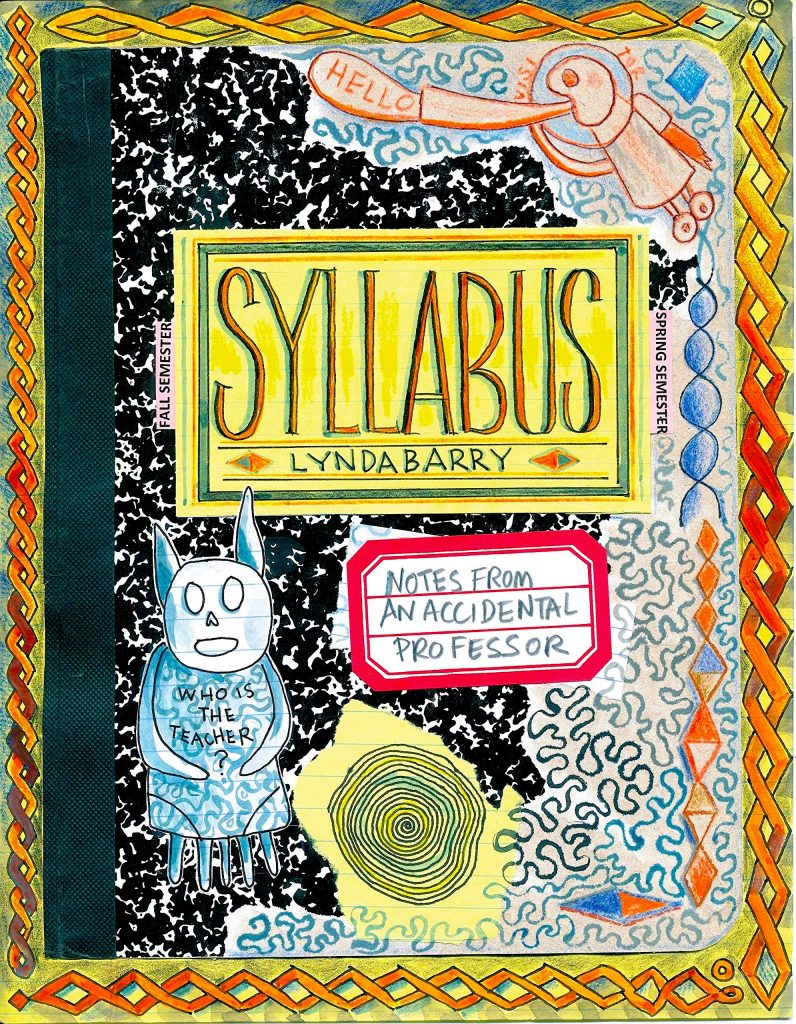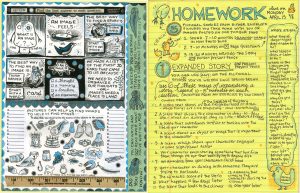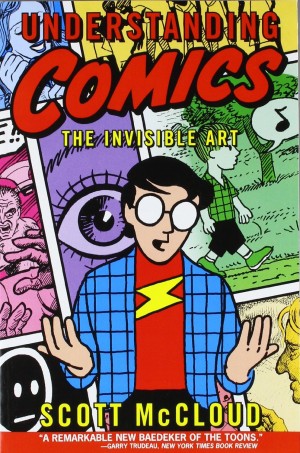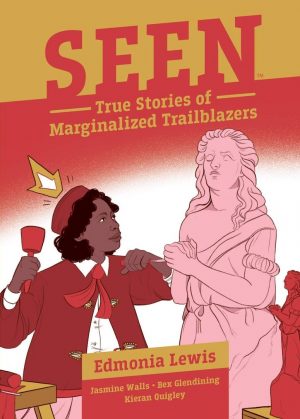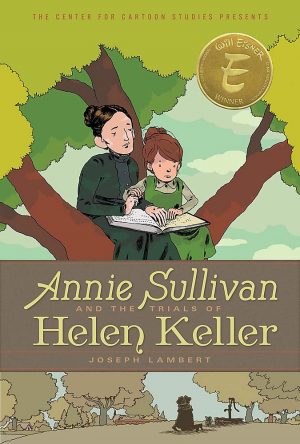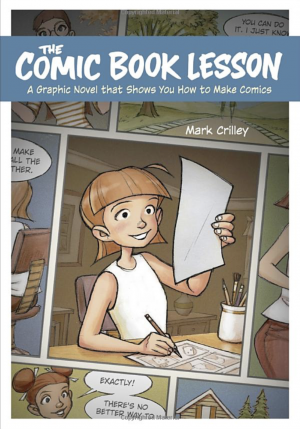Review by Woodrow Phoenix
Lynda Barry began exploring the mysteries of narrative storytelling in What It Is, a large format hardback book which is part autobiography, part philosophical enquiry and part creative exercises. The beautifully imposing, big volume showcased its complex content very well, but for a book which more directly explains how to begin writing and drawing stories in comics form, a different approach was required.
Schoolchildren in the USA are issued with composition books to do their schoolwork in, and these are notebooks with lined pages, a simple stitched binding, and board covers with a black and white marble print pattern. Syllabus: Notes From an Accidental Professor mimics the size, shape, colour and black binding of a Mead notebook, decorated just like a student personalises their exercise books with stickers, little drawings and other items taped on to the covers. It’s a form that any American will recognise. This has the effect both of indicating engagement in an educational activity and making your student status feel informal and not intimidating, as if you are simply looking into Lynda Barry’s own notebooks of her workings and reading through her scrapbooks and diaries.
The other reason Syllabus is presented like this is that her class is structured around her students taking their composition notebooks everywhere they go. She explains: “Intentionally keeping a daily diary is difficult and usually a drag to write and a drag to read. A more interesting diary of a very different sort will spontaneously show itself if we begin to put pieces in of everything that concerns us through the day in one place … include some of the ephemera from your daily life: ticket stubs, candy wrappers, receipts, labels, weird handouts, stickers, notes found on the street, torn out pictures etc. … Unexpected juxtapositions of these elements can lead to stories you can use in class. Patterns start to emerge that can be very helpful in trying to understand what this thing I call ‘the back of the mind’ is up to. I think of the comp book as a place for the back of the mind to come forward. If you keep up with your comp book all semester, when it comes time to decide what your final project should be about, your composition notebook will already contain the answer.”
Lynda Barry has devised and taught her writing workshop called ‘Writing the Unthinkable’ for years, and this book is essentially that class between two covers. The 22 weekly sessions are each fully laid out here in their colourful entirety for anyone to take the course by themselves at home, one lesson a week including homework and other exercises until they reach the final project. This book is so stuffed with different kinds of visual storytelling, ideas and concepts that it is a satisfying read just as a collection of insights into the creative process–or one version of it–but after you’re a few pages in you may find it impossible not to pick up a pen yourself to see what happens.
